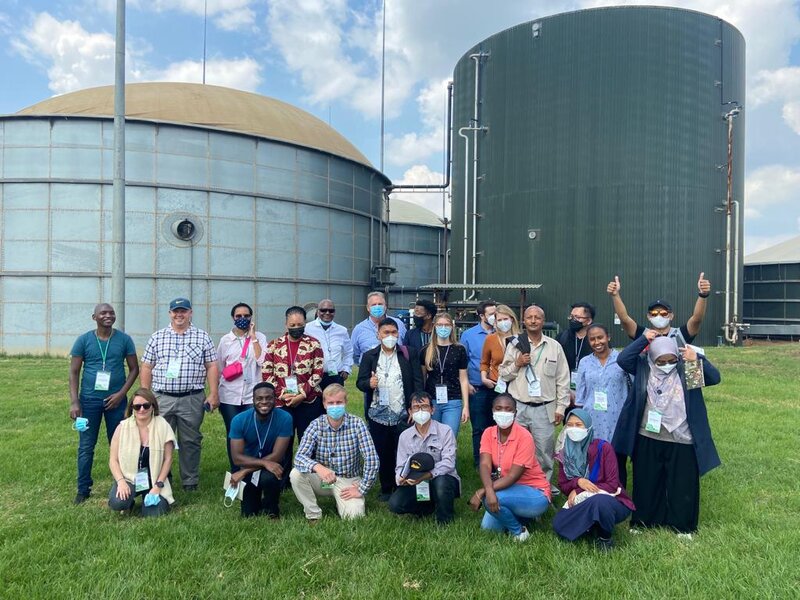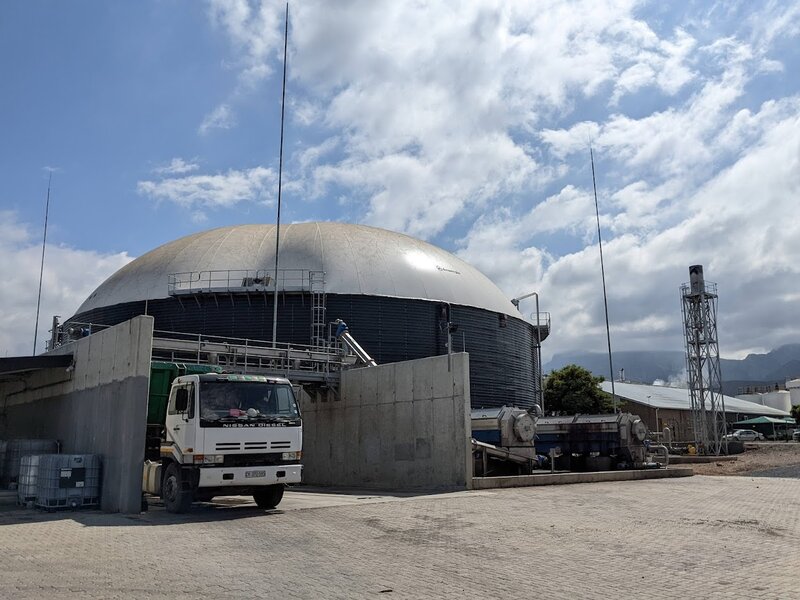The Digital Global Biogas Cooperation (DiBiCoo) recently hosted a study tour and capacity building workshop to provide interested stakeholders insights into South Africa’s developing biogas market.
The study tour and capacity building workshop took place in South Africa from 22-24 March 2022. The events hosted international delegates from Argentina, Indonesia, Ghana, Belgium, Ethiopia and Austria.
The study tour was aimed at business delegations, interested stakeholders and project partners looking to gain insights and learnings from four existing biogas project sites within South Africa’s developing biogas market. “The study tour enabled stakeholders from developing and developed biogas markets to see existing technologies in operation under real-life conditions and to learn more about challenges and barriers that were overcome to establish these projects,” said Yaseen Salie, bio-energy analyst, leading the DiBiCoo project for GreenCape.

Have you read?
Biogas: DiBiCoo local stakeholder workshop, part two
Biogas technology tour and capacity building workshop for the SA market
The study tour in South Africa had two instalments. The first instalment of the tour kicked off in Tshwane (Gauteng) at the Bronkhorstspruit biogas plant. The plant produced its first power that fed into the national grid on 10 October 2015. An independent commercial enterprise with an initial life cycle of 20 years, will contribute to diversifying the South African energy mix away from coal. The second site visit was at Riverside Piggery biogas project plant. The plant produces enough biogas to generate its own electricity.
Have you read?
Biogas: How business & govt can benefit from a green, emerging resource
Workshop recording: Identifying financing options for biogas projects in South Africa
The capacity-building workshop discussed the current and future potential of digestate management and valorisation. Yaseen Salie presented the current context of digestate in South Africa. Dr Gamuchirai Mutezo from SABIA provided an overview and strategy for digestate management and valorisation in RSA. Jorge Hilbert, Researcher at INTA, presented on the life cycle assessment (LCA) studies conducted in Argentina for biogas and digestate. Jaryd Ridgeway, Founder of Green Matter Organics, presentation presented a digestate value add solution case study.
The second instalment was hosted in the Western Cape and the study tour started at the Tecroveer biogas plant (Worcester) a small-scale packaged plant as well as large-scale sewage solutions. They offer wastewater treatment, drinking water solutions, innovative anaerobic products and mining water including sewage treatment. The second site visit was at NHE biogas project plant.
The following knowledge sharing points were discussed
- The current context and impact of digestate on biogas project development and implementation in South Africa.
- An overview of current and upcoming activities of South African Biogas Industry Association with regards to the management and usage of digestate in South Africa.
- Argentina shared the learnings and insights of their life cycle assessment studies for biogas and digestate.
- Case study of digestate management and beneficiation practices within South Africa.
- Identifying utilisation pathways for digestate management and beneficiation within South Africa.
The target audience for these hybrid events includes turnkey providers, project owners, municipalities and investors and off take clients interested in the management and beneficiation of digestate produced by biogas plants. The secondary audience would be agriculture stakeholders and regulators keen to gain a better understanding on how the de-risk the usage of digestate within agriculture sector.
DiBiCoo is a cooperation project between biogas technology developed and developing market countries, with the overall objective to support the European biogas/biomethane industry by preparing markets for the export of sustainable biogas/biomethane technologies from Europe to developing and emerging markets. This project has received funding from the European Union’s Horizon 2020 Research and Innovation Programme under Grant Agreement No 857804 (DiBiCoo – Digital Global Biogas Cooperation).
